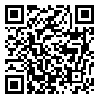

BibTeX | RIS | EndNote | Medlars | ProCite | Reference Manager | RefWorks
Send citation to:
URL: http://hcjournal.arums.ac.ir/article-1-438-en.html
Background & objectives: Aggression not only harms the victims, but also affects their own growth. Aggression refers to any form of behavior that can hurt and harm the others. Too much pphysiological aggression may cause excessive activity of the parasympathetic nervous system or may cause excessive reaction to environmental or laboratory stressors. Therefore, this study sought to evaluate the effectiveness of acceptance and commitment therapy on reducing physical aggression, verbal aggression, anger and hostility among students addicted to the internet.
Methods: The research method was semi-experimental and the design was pretest-posttest with control group. The population consisted of all high school male students addicted to the internet in the schools of Tehran’s 21 district in 2015. Intervention and sampling lasted 4 months from May to October 2015. Sample was composed of 30 students from the community. Subjects were chosen using cluster sampling method. The subjects were randomly divided into control and experimental groups. Study measurement tools were Aggression Questionnaire (AQ) and Young’s Internet Addiction Test. AQ measurement tool measures four subscales of physical aggression, verbal aggression, anger and hostility. Internet addiction test discriminates ordinary internet users from the users who have internet addiction. Acceptance and commitment therapy was conducted in Manshor-e-Mehr Research Center in 8 sessions and each session lasted 45 minutes. The subjects responded to questionnaires before treatment and 1 month after treatment. Descriptive statistics and analysis of covariance by using SPSS V.22 were used for data analysis.
Results: Findings showed that acceptance and commitment therapy decreased subjects’ physical aggression, verbal aggression, anger and hostility in the experimental group (p<0.05); but there was no such changes in the control group .
Conclusions: The results of this study shows a better understanding of the effect of acceptance and commitment therapy on aggression variables, and it is proposed that researchers do this study in the other communities with a wider age range.
| Rights and permissions | |
 |
This work is licensed under a Creative Commons Attribution-NonCommercial 4.0 International License. |


